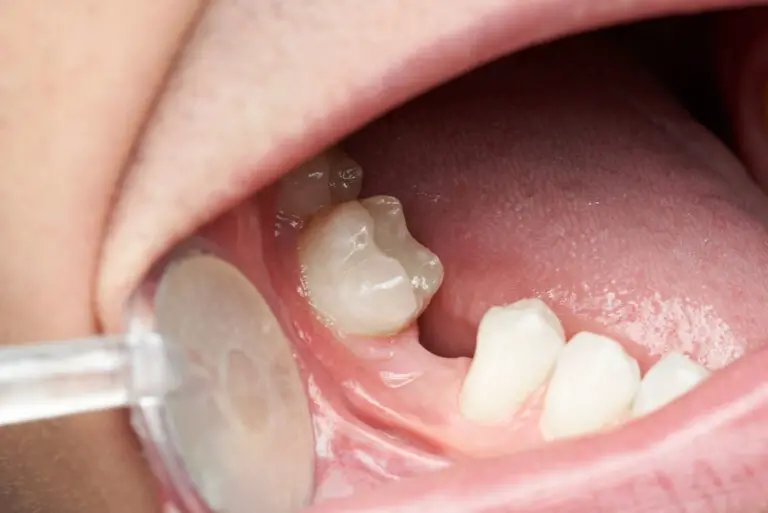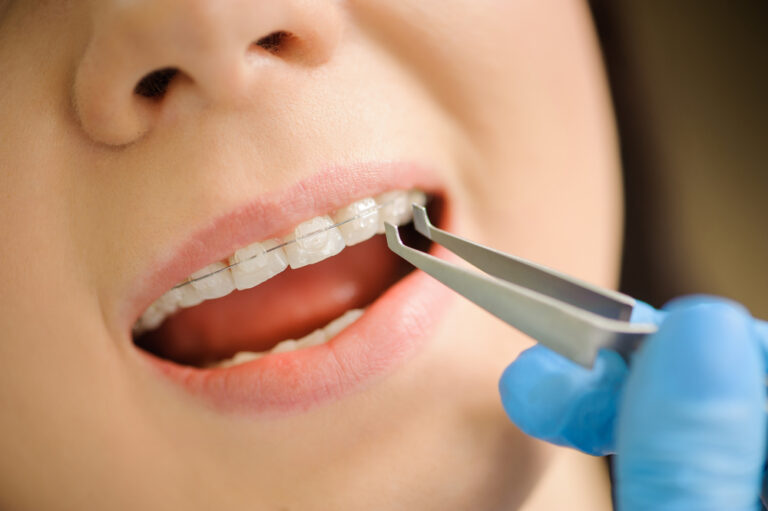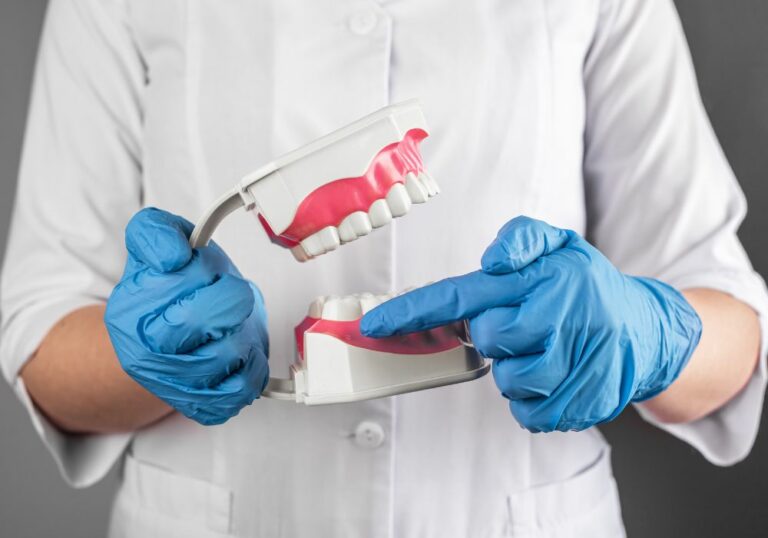Do you remember the days when rock stars and rappers would get gold teeth as part of their look? The trend may have (somewhat) passed, but the truth is that using dental gold is anything but a trend. It’s actually a cornerstone of modern dentistry.
You might be curious about what dental gold is, what it is used for, and whether it’s the right tooth material for you. Let’s talk about this precious metal option and what your dentist would want you to know about it.
What is dental gold?
When people talk about gold teeth, they are actually talking about a specific alloy called dental gold. As the name suggests, dental gold’s primary ingredient is actual gold. In the past, gold was used because it is malleable, easy to mold, and at the same time, body-safe.
Dental gold is a gold alloy that can withstand acidity, can be used in all types of dental work, and won’t interact with sensitive skin. Since it is bio-compatible, you don’t have to worry about it being rejected by your body.
PRO TIP – While gold is generally biocompatible, allergic reactions are still possible. Ask your dentist if your dental gold has any nickel in it. If it does, then this type of alloy may have a side effect or two associated with it.
What is dental gold used for?
Dental gold can be used in any place where you would expect porcelain or composite to be used. It can be used for inlays, cavity fillings, onlays, as well as dental restorations. If you are looking for dental implants or partial dentures, you may want to look into dental gold.
Most of the time, this material is used in gold alloy crowns and small fillings.
What is dental gold made from?
Dental gold is not pure gold, though there is a minimum percentage of this precious metal required to make it. Dental gold is a blend of gold with metals like iridium, silver, palladium, or platinum.
If you’re on a budget, then you may see other additives like tin or copper added to the mix. This is not good, since this can contribute to tarnishing and other side effects.
What types of dental gold are there?
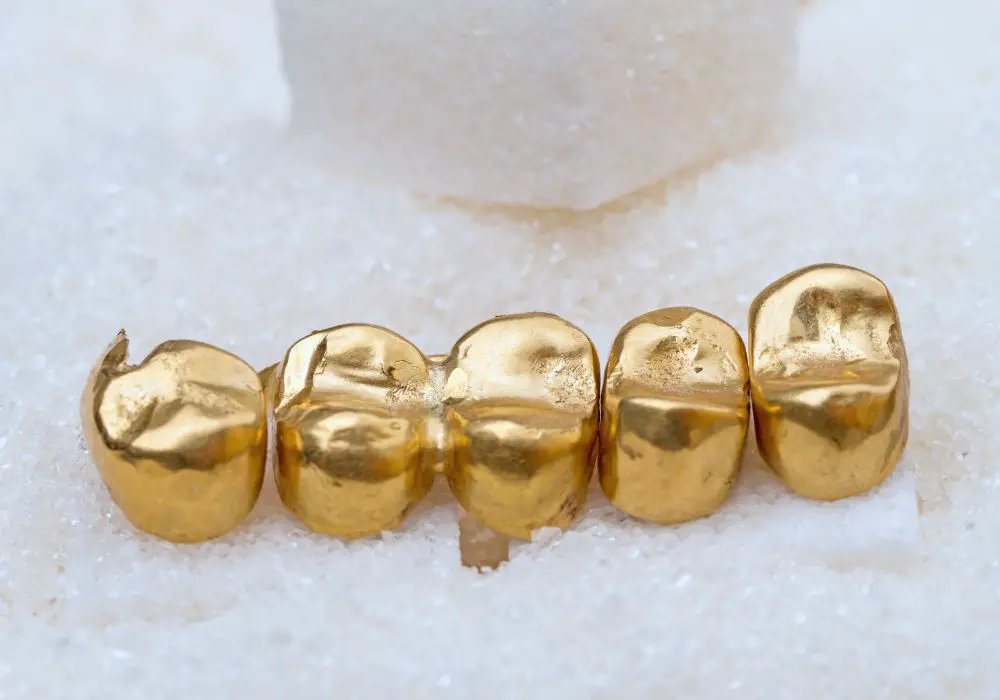
There are three main types of dental gold currently on the market. How much gold you include in the alloy will determine what type of dental gold it is.
High Noble Alloy
A high noble alloy is at least 40 percent gold or with 60 percent of the remaining alloy content being high-noble metal like platinum. These are often used for large bridges, important dental implants, and more.
If you are worried about having an allergic reaction due to the metal content of your alloy but still want to use dental gold, then you would be best off with a high noble alloy. These are the most biocompatible alloys on the market.
Noble Alloy
A noble alloy is made of at least 25 percent precious metal, including gold. These alloys tend to be more affordable than high-noble alloys, which makes them attractive to people who want durability and affordability.
Noble alloys are still very durable and can be a great pick for molars that deal with a high level of use. They do, however, have a slightly higher chance of tarnishing and oxidation when compared to a high noble alloy.
Non-Noble Alloy
A non-noble alloy is also called a non-precious alloy, and it’s exactly what it sounds like. This is a dental gold that has less than 25 percent of its content being a precious alloy. So, it’s basically a metal alloy with a smattering of gold in it.
Common ingredients in a non-noble alloy include chromium and nickel. These alloys tend to be very prone to tarnishing, corrosion, and oxidation. You might get a total of five years of use out of a dental filling with this alloy in it.
What does dental gold look like?
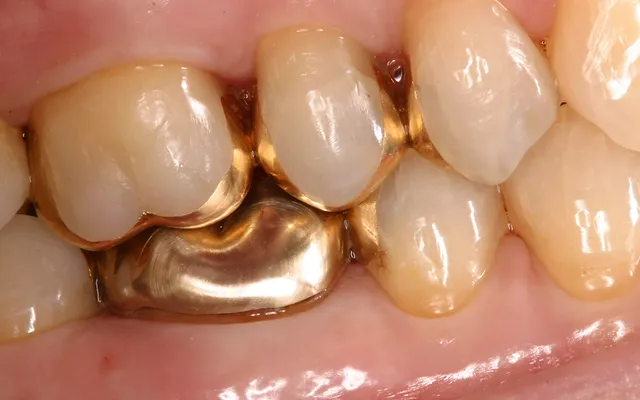
Dental gold does not look like natural enamel. In fact, it’s very easy to spot. It looks metallic. Most dental gold with a high precious metal content will have a golden sheen to it. It is possible, though, to have a high noble alloy that looks silver.
Most people do not like having their front teeth done with dental gold because it doesn’t look like the original tooth. It can be distracting to look at, which is why it’s usually used for molars.
Does dental gold tarnish?
Unfortunately, it can tarnish. One of the reasons why high noble alloys tend to be so popular is because they have a reduced likelihood of oxidation and tarnishing. If you have concerns about tarnishing, talk to a dentist to find out whether this is a good option for you.
Are there any patients who shouldn’t use dental gold?
For the most part, it’s safe to assume that most people can use dental gold without side effects. However, if you have metal allergies, this may not be the best choice for you. It can cause a reaction.
The best thing you can do when it comes to choosing a tooth enamel filling is to talk to a dentist. They will be able to point you to the best choice for your personal health and smile goals.
How long do dental gold crowns last?
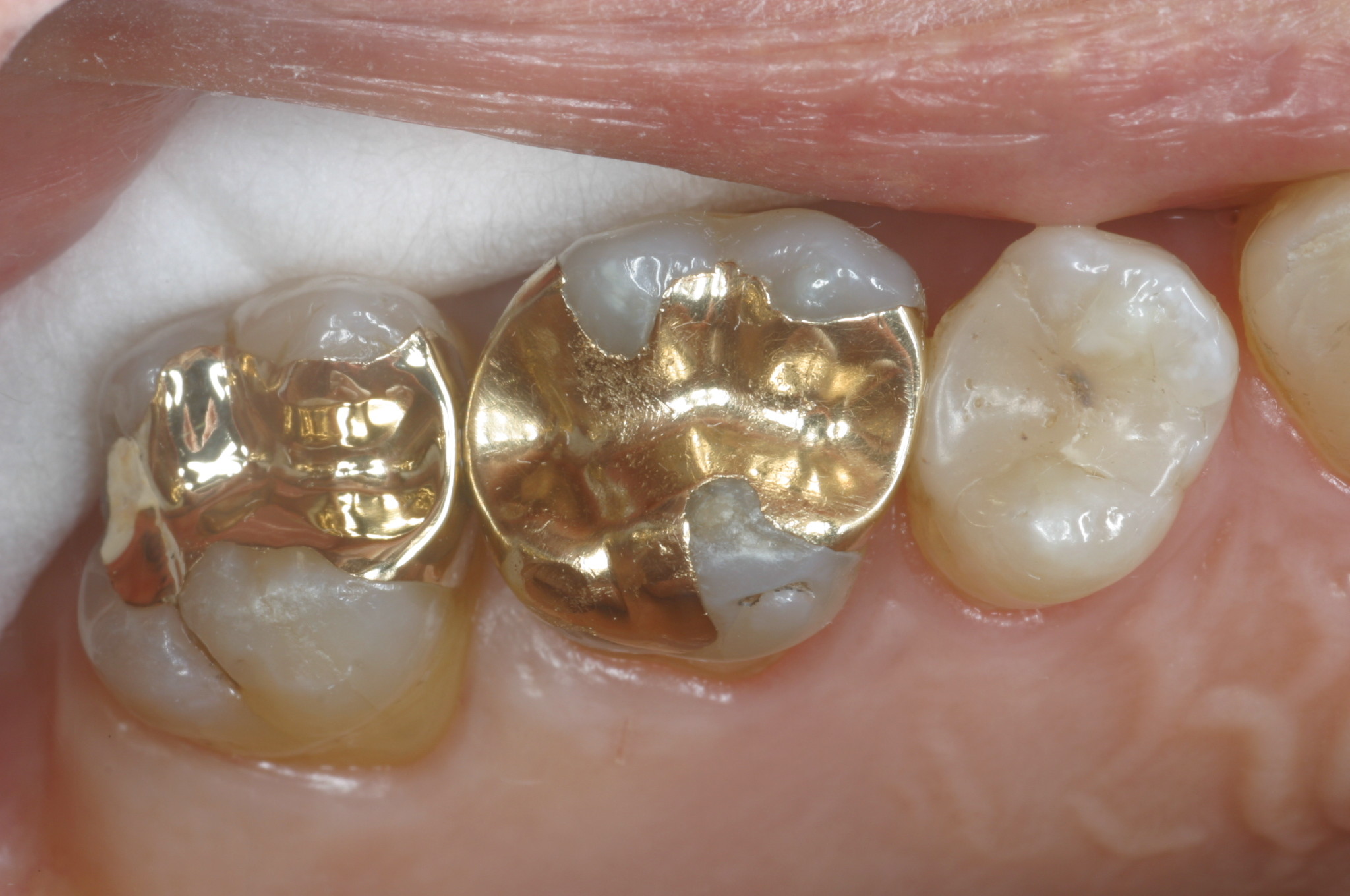
Whether it’s a crown, an implant, or even a filling, the answer to dental gold’s longevity tends to be the same. Most dental fillings made out of a gold alloy will last between 5 to 10 years with proper care.
With that said, most dental implements made with gold are exceptionally long-lasting. It’s not unusual to hear of a gold tooth lasting 30 to 40 years with proper care. Gold has been used as a dental tool for centuries because it’s so durable.
PRO TIP – It’s worth noting that porcelain tends to be more brittle than gold. If you tend to chew a lot of goods, you might want to stick to gold. It’s less likely to crack or abrade. This makes them a stronger and more affordable option compared to porcelain.
How much do dental gold crowns cost?
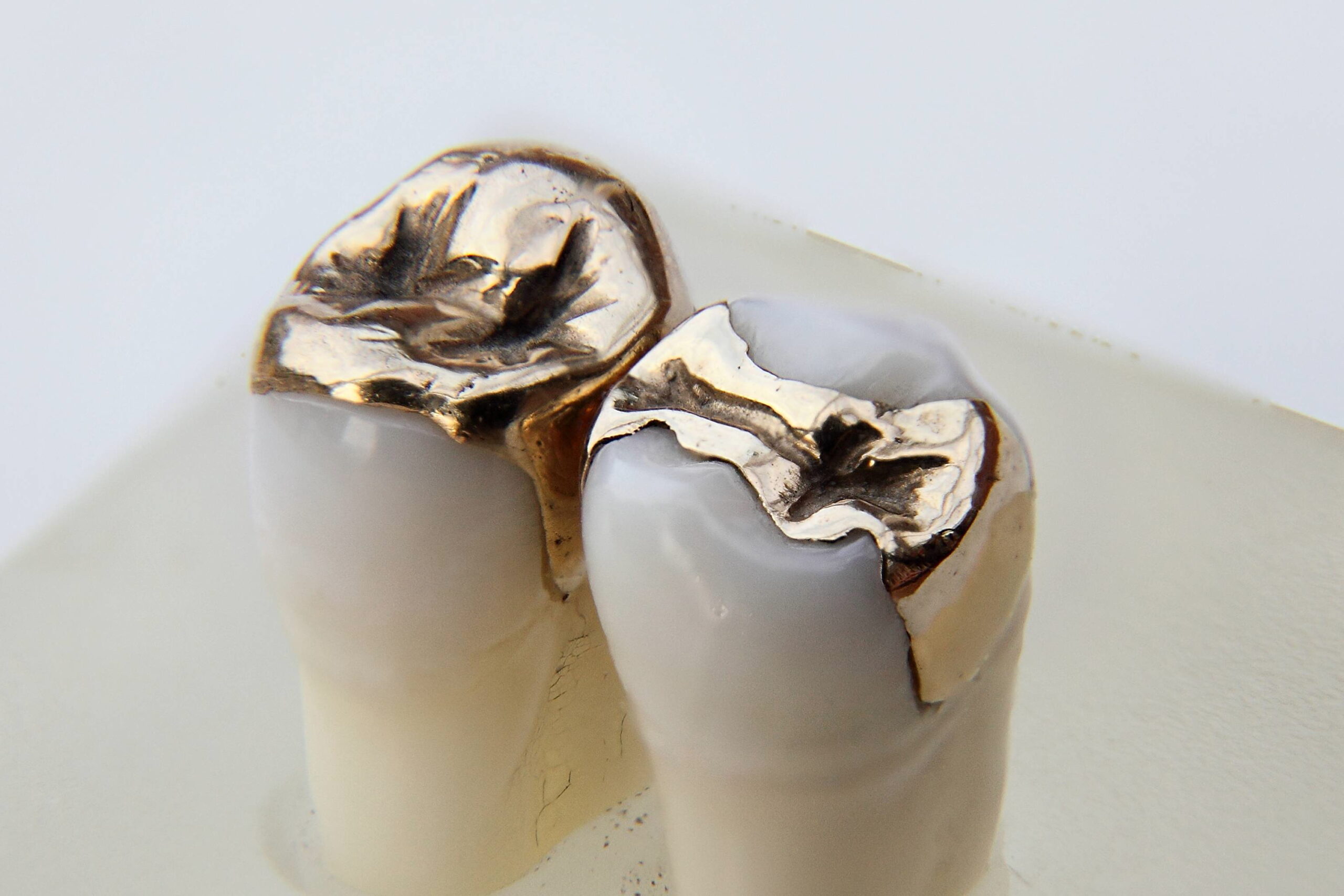
A good rule of thumb to follow for dental gold prices is that they tend to be about a third of the price of porcelain. Porcelain crowns cost around $2,000 a pop these days. Gold crowns, on the other hand, cost between $650 to $900.
The problem with dental gold crowns is that they tend to fluctuate based on the price of gold. It’s not like there is another substitute on the market, after all. Moreover, your crown’s alloy will also have to maintain consistent percentages to remain marketable and reliable.
Because the formulas for these alloys can’t change too much, how pricey things get will always change with the gold market. If gold spikes, then gold crowns could very well become more expensive than porcelain.
Am I a good candidate for dental gold implants, crowns, or fillings?
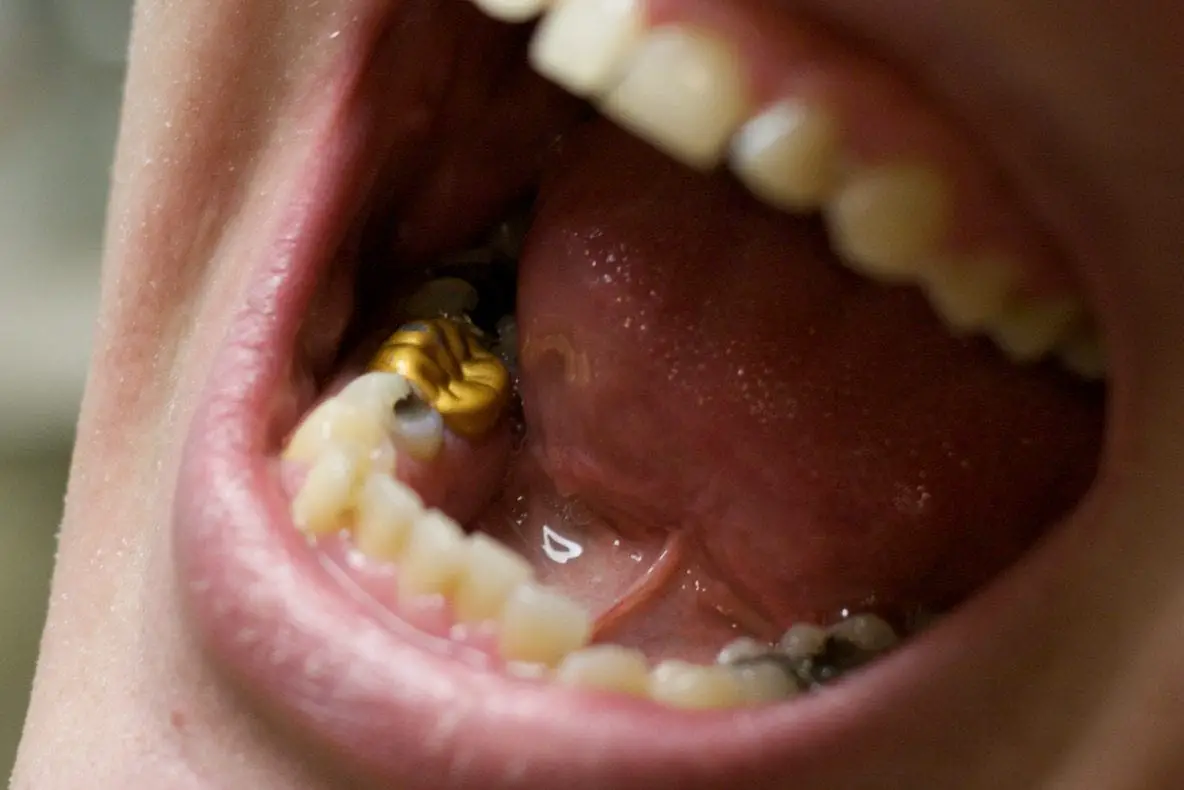
There are reasons why dental gold has been around for centuries. One of the biggest reasons is that it works well. However, that doesn’t mean it’s always the best choice for patients. You might want dental gold if the following is true:
- You do not have allergies to metals like tin or nickel. Some people do, and those people are often advised to double-check the paperwork associated with the alloy or avoid them altogether.
- Your dentist has told you that dental gold is an option. Not all dental work can be done with gold! If you are looking for a crown or filling for severe tooth decay, you may need to have a different material present.
- You need to have a high level of strength and durability for the tooth in question. This metal tends to be most popular with molars for that reason. A person’s chewing action can crack other tooth materials.
- The tooth in question is not in the front of your mouth. Unless you are okay rocking a gold tooth as part of your smile, you’re going to want to keep these in the back.
- You’re in a financial bind. Because gold teeth have a certain look to them, they tend to be cheaper than porcelain teeth. Sometimes, they’re even cheaper than resin.
Not sure whether you should get dental gold for your next repair?
Tooth restoration, repairs, and fillings can be a major hassle. Being able to figure out which type of dental material to choose is a huge part of that battle. Thankfully, it’s not a decision you need to make on your own.
A quick talk with a qualified dentist is all you need to be able to make the right choice for you. So, when in doubt, just ask!


